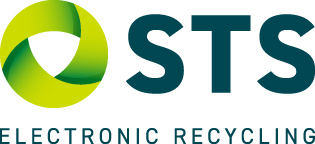Electronics Recycling...The Basics.
The question of how to recycle an electronic device is becoming ever more frequent. Whether its your desktop computer, handy laptop or the can't live without smartphone that has become out of date or broken there is an appropriate disposal process for unused or out of date electronics.
First lets discuss some of the common types of electronics you may interact with on a daily basis, and may even throw away (shame on you.) For starters, if you're reading this you're probably interacting with atleast five personal electronic items: your keyboard, mouse, crt or lcd monitor, dektop laptop or tower computer, most likely a pair of speakers, a modem and a wireless router...and that's a basic setup. The items listed are only the items in the same room as you. For you to read this article, somewhere in your area is a networking hub transfering my file from a server, located somewhere I've never been, through various other networking hubs and it somehow all arrives in front of your eyes through your crt or lcd display in a matter of seconds.
Here is a basic list of the common types of computer peripherals you interact with daily, whether you're aware of it or not.
- Cables
- Circuit boards
- Computers
- Laptops
- LCD screens
- Modems
- Monitors
- Motherboards
- Networking Hardware
- Servers
- Telecommunication Equipment
- Telephones
- Wiring
- Cell Phones
Located inside of everyone of the items listed above, are toxins such as lead, cadmium, mercury and berryilium, just to name a few. Common knowledge tells us these elements since not allowed in landfills should not be thrown in a trash can or dumpster. So how does one dispose of a wireless router struck by lightning? Its only a one word explanation: RECYCLE! Recycling electronics is a simple process.
Step A: Gather up all of old, broken or unwanted electronics, Step B: Call an electronics recycler servicing your area, Step C: Arrange for free pickup (This service is only offered by select electronics recyclers, and is often based on amount of material to be recycled) or simply drop your things off at an electronics recycling facility near you.
Things to consider when disposing of electronics with an electronics recycler include secure data destruction and environmentally friendly recycling practices.
Secure data destruction means the recycler destroys hard drive data either by a rewrite program often refered to as a DOD or Department of Defense wipe or by physical hard drive destruction, often carried out through drilling the hard drive or running it through a commercial style shredder (hint: your home paper shreader will not work.)
Real electronics recyclers recycle EVERYTHING, meaning every type of electronic, they won't pick and choose what you can and can't leave with them. Often so called recyclers will pick the cherries and dispose of the remainder of your electronics in a roll away dumpster located out of the public view. Avoid companies refusing to take your peripherals and electronic recycleables.
Find a recycler servicing your area by using a phonebook or a google search. Your best bet is to search terms with your area and the phrase, for example: "computer recycling service" or "Dallas Electronics Recycling Service."
Go Green and Recycle your Electronics Responsibly!



